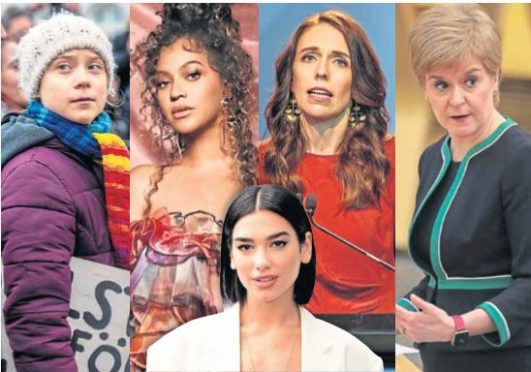“Dad, I signed a petition to stop Donald Trump dumping lots of plastic in the Arctic and killing all the polar bears, and it’s worked!” My 11-year-old daughter and her friends have, it would seem, begun sticking it to The Man.
If I was The Man (um, wait…) I’d watch out.
Our youngest, with the last vestiges of baby softness and innocence still upon her, is entering the period described as Girlhood. Our 19-year-old has just come out the other side, and our 16-year-old is in the weeds of it all. As a parent, and as a man, it is a magical experience watching these women – these sassy dames, this triple threat – slowly emerge from the chrysalis.
The middle girl is by now a wizened old hand at the online petition racket. She’s the most secretive of the three, but will occasionally let slip that she’s added her name to this campaign to prevent an environmental outrage or that effort to support Black Lives Matter. When she goes off on one I goggle at the level of detail and nuance she has privately absorbed, and the firmness of her views. When I was 16, my interests didn’t extend far beyond Teenage Fanclub, Manchester United, and the golden skin of Anne Marie, the unattainable goddess of Class 5B. My daughters are a distinct upgrade on the father.
Girlhood is the subject of a fascinating article in The Economist, which has spoken to 11-16 year olds across Europe and the US in an attempt to map their ambitions and desires, their changing expectations and their forthright views. The journalists heard of “TikTok and bubble tea, anger and activism, make-up tutorials and trampolining, anxiety (both theirs and their parents’) and big plans for the future (ditto).” The generational change was apparent: “What came out most strongly was the girls’ sense of shared identity and shared potential.”
Girls today have little time for society’s straitjacketing traditions. Their interests are diverse to an extent that frustrates advertisers attempting to identify a market. They no longer define themselves against the pimply swagger of the teenage boy. One girl puts it perfectly: “I know boys are biologically stronger, but no one cares about farms anymore.”
Though the age at which puberty begins is falling, sexual activity is starting later. The expansion of opportunity and the rise in levels of equality is transforming priorities. In the mid-20th century, love, a husband and a career were the most sought-after goals, and in that order. Today’s girls are more likely to want an “interesting job”, “financial independence”, and to “change the world”. In The Economist survey, “marriage” and “have children” were low on the list, “and sometimes crossed out”. Sounds about right – our 19-year-old wants a flat of her own, three large dogs and a Playstation.
With new freedoms come different types of pressure, of course. Eating disorders and self-harm are more common, and rates of depression have risen. Girls can be awful to one another – as a man, one of the hardest things to get your head around is the blithe savagery of the female friend group (and into adulthood, the school-gate sneeriness of the uber-mums).
But the world is undoubtedly an improved and improving place for female emancipation. There is much further to go, of course. It’s important that girls see people who look, talk and think like them operating at the highest levels, whether it be in Bute House, at the top of the world’s largest companies, or in the cultural sphere. Nicola Sturgeon and Jacinda Ardern matter, as do JK Rowling and Martha Lane Fox, and Beyonce and Dua Lipa.
At a hard policy level, unleashing the full potential of women boosts economic growth, productivity, innovation and inclusion. It’s a win-win, even if a certain type of man – clenched, threatened – refuses to see it that way.
We’re doing our bit with our three. Their way has been lit by a strong mother, two quirky, formidable grandmothers, and an indomitable great gran, each of whom ploughed distinct paths through life in considerably more challenging and oppressive circumstances. I’ve learned more from each generation of our family’s women than they could ever learn from me.
Our 11-year-old has recently discovered make-up, and emerges from her room not done up like a dolly but sporting various masques of horror and flesh wounds. Over Christmas we watched the ultra-violent John Wick series of films, and it was with a wincing mix of astonishment and pride that I listened to her identify the various guns being used. Her experience of playing the online game Fortnite, where, daily, she deploys a vast array of weaponry in the lethal pursuit of fellow children, had taught her the specs and the lingo.
She’s coming. The Man had better watch out.
Chris Deerin is a leading journalist and commentator who heads independent, non-party think tank Reform Scotland











